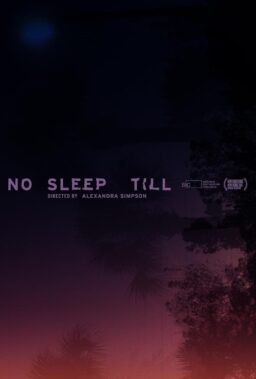Q. This weekend I saw “Seven,” and I’m writing about your disappointment with the ending. I thought it was a fairly clever and creative resolution. If the writers intended a surprise, then there was little “set up” work that could occur before the viewer learned that the bad guy chose to victimize [name deleted] for sin #6, Lust. In my opinion, any greater emphasis on [that character] would have removed any element of surprise whatsoever. My only suggestion to alleviate the anticlimactic end would’ve been to cloud the issue by casting doubt on more of the characters (i.e., Morgan Freeman throwing knives in the darkness of his room with that scary look). I really don’t see how else to conclude “Seven” than by having Pitt commit Wrath. (Greg Robinson.74743,2025)
A. The ending wasn’t really bad, but somehow it didn’t complete the film for me at the same level it began. I thought perhaps if a way had been found to force one cop to murder the other one (in particular, if the strong cop, played by Freeman, had been forced to kill his partner), that would have been more consistent with the movie’s dark theme, which is, I think, John Doe’s demonstration that evil lurks in all of our hearts. It would also have made the ending terrifically difficult for audiences, of course, although the ending as it now stands is not exactly easy to take.
Q. I work in the home video industry and recently spotted the box-art for the release of “Gordy,” upon which you are quoted as saying “Kids will squeal over Gordy!” Being familar with your writing style I find it hard to believe that you would actually say that. Tell me it isn’t true! (Bret Hayden, Los Angeles)
A. I gave “Gordy” a two-star rating, adding that kids might like it. Later, after seeing and enjoying “Babe,” I wrote a footnote urging people not to mistake it for “Gordy.” As far as I can tell, I never wrote “Kids will squeal over ‘Gordy’!” in the past, and I will resolve never to write it in the future.
Q. I haven’t seen “Strange Days” yet–though I’m planning to–but the ad campaign is driving me nuts. December 31, 1999 is NOT the last day of the century! That distinction applies to December 31, 2000. Doesn’t stuff like that get you? I hope they don’t refer to that in the film itself. I can forgive a studio for that kind of bungling, but Jim Cameron, Jay Cocks and Kathryn Bigelow, et al., should know better. (David Montgomery, Bakersfield, Calif.)
A. Maybe that explains why the world doesn’t end at midnight the way people in the movie is expecting it to! Attention, cult members: Take a long, hard look at anyone who tells you the world will end on the last day of 1999.
Q. Regarding the reader who asked about the cigarettes in “Pulp Fiction.” You said they were called “Green Apples.” The brand is actually called “Red Apples” and all the characters in the movie who smoked preferred that brand except John Travolta’s character, who rolled his own. (Lon Miller, Bloomington, Minn.)
A. You are correct.
Q. My wife and I saw “How to Make an American Quilt” at a benefit showing in our town, where a lot of the movie was shot. What irked me most was the smoking! Most of the main characters smoked frequently, and that distracted me from the telling of the story. (I’m a family doctor, so perhaps I’m more sensitive on this issue than most.) We ought to let the people who make movies realize how offensive smoking can be, even when you can’t smell the smoke. If the smoking had some function in the development of a character, or in the movement of the plot, I wouldn’t object. The marijuana in this film, for example, might be offensive to some, but I can at least see how it was intended to tell the viewer something about the two sisters. (Robert Bourne, Redlands, Calif.)
A. Few people still smoke in the economic and social bracket of the characters in “American Quilt,” and those who do, especially in California, are forever going through apologetic behavior about it. It’s possible the student (Winona Ryder) might have been a smoker, since some students smoke as a kind of death-defying statement. I understand that in real life Ryder is a smoker. I hope her agent tells her about those little wrinkles she’s going to be getting around her lips in about 10 years.
Q. It occured to me while watching “The Scarlet Letter” to wonder: How many young women in colonial New England shaved under their arms, do you suppose? (Will Shank, Toronto)
A. Even more to the point, how many of them took long, luxurious baths in front of peepholes, so that other people could see if they did or not?











